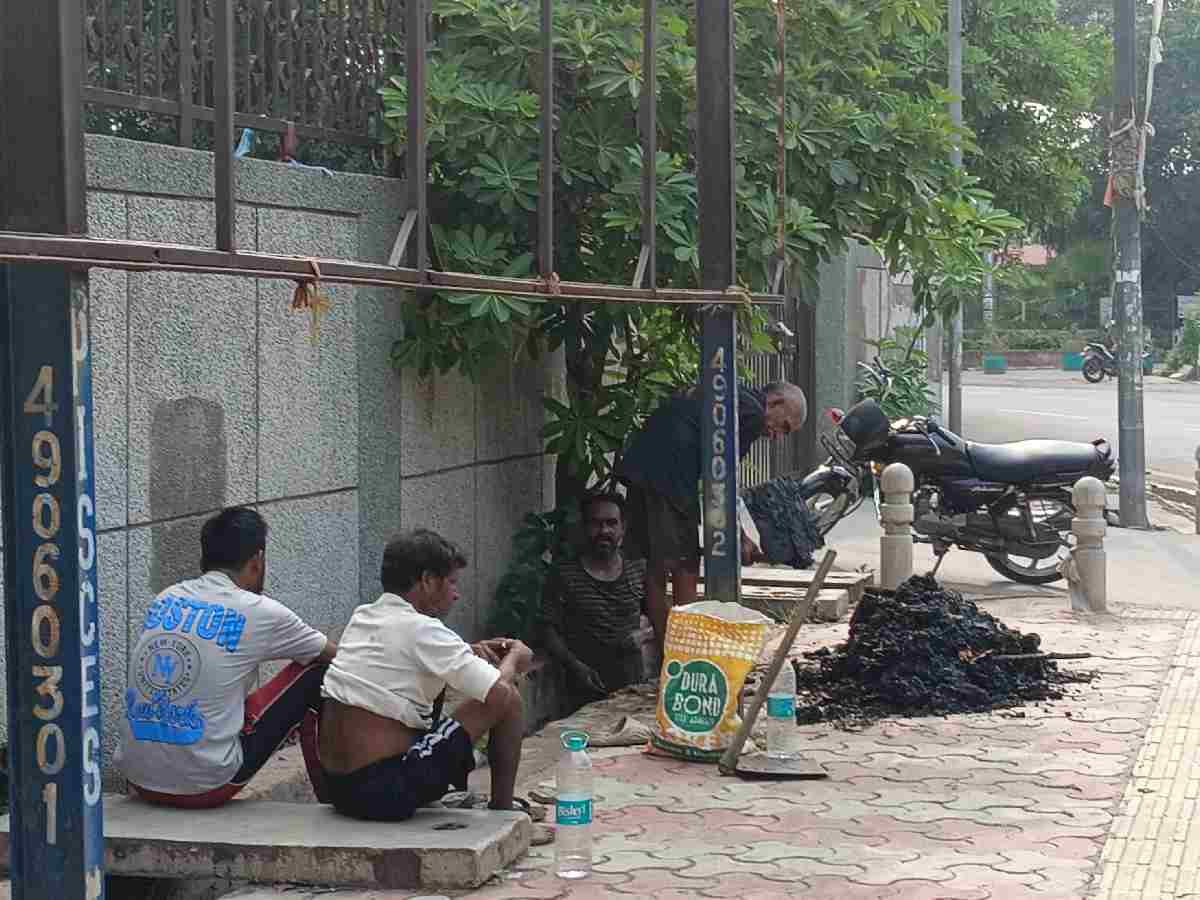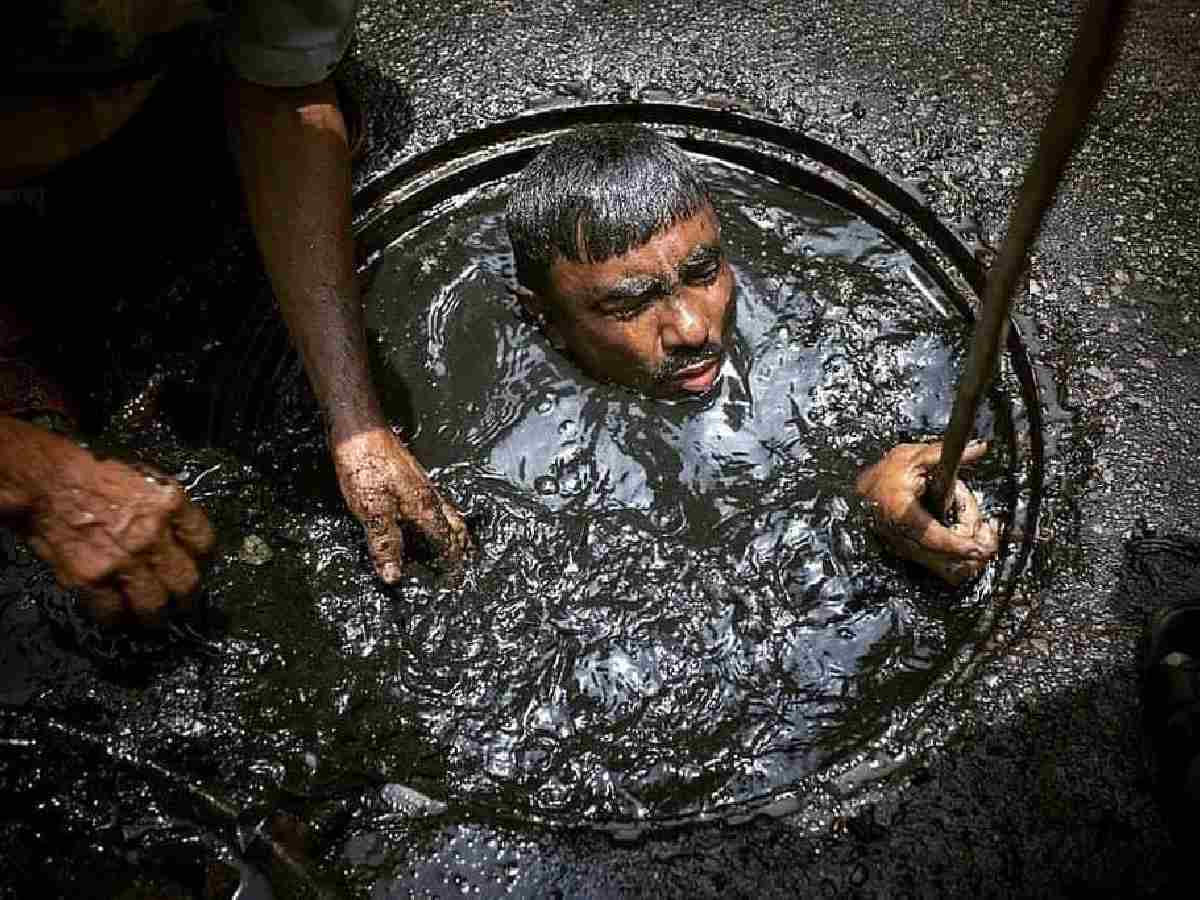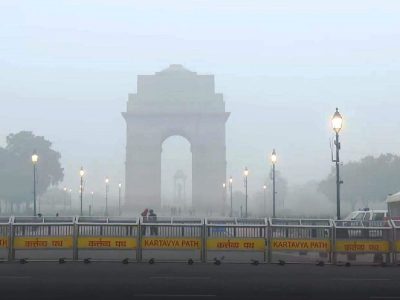Working under Delhi’s harsh summer sun, Hari Singh, 26, prepares to descend into a foul-smelling sewer at East Vinod Nagar in East Delhi. The rain has turned the dry sewer into a cesspit, the stench of human excreta unmistakable.
Singh remains unfazed. “I have been doing this work for a long time. During desilting season, we get the maximum amount of work. Contractors from all across Delhi come to us to work for some local body or the other,” he said. “It helps with our financial condition.”
Along a narrow, putrid channel, Singh and his co-workers Raj Kumar and Mahesh labour on. The trio is racing to meet the desilting deadline of June 30, having missed several earlier targets. What they do not realise is that manual cleaning of drains is not only hazardous—it is also unlawful.
According to the Public Works Department (PWD), 70.28% of Delhi’s drains under its jurisdiction have been desilted so far. With the monsoon looming, efforts have intensified. But while the department claims progress, the reality is far murkier.
Contractors bypass safeguards
The PWD outsources the desilting work to third-party contractors through tenders. These contractors then hire workers—often from marginalised communities—to manually clean Delhi’s drains. Since most of these are stormwater drains and not officially classified as carrying human waste, contractors use this loophole to circumvent the Prohibition of Employment as Manual Scavengers and their Rehabilitation Act, 2013. The Act prohibits manual cleaning of sewers and septic tanks containing human waste without protective gear.
However, activists and rights groups argue that this distinction is both technical and deceptive.
In urban areas like Delhi, stormwater drains are frequently breached by sewage pipelines. This has been acknowledged by government agencies in court submissions, National Green Tribunal orders, and by senior officials.
“These stormwater drains aren’t pristine rainwater channels. They’re clogged with sewage, industrial waste, and sludge,” said Kumar, lifting another tray-load of filth from a drain. “If someone is forced to enter these drains, neck-deep in filth without safety gear, how is this not manual scavenging?”
An activist pointed out that the process should have been fully mechanised this year, in keeping with PWD’s claims of modernisation. “Machines should handle this. The law is explicit: no human should enter such spaces unless absolutely necessary and fully protected,” he said.
Machines introduced, then sidelined
On April 6, ahead of the monsoon, the PWD launched advanced drain-cleaning machines across Delhi to address waterlogging. During an inspection, PWD Minister Parvesh Verma said CCTV monitoring would ensure thorough desilting. In South Delhi’s Greater Kailash, he oversaw a trial of a sewer recycler machine imported from Mumbai. The device, which treats and reuses water, was touted as efficient, eco-friendly, and capable of cleaning without human entry.
“Our effort now is to have state-of-the-art machines in every assembly constituency to ensure thorough cleaning. This initiative is a concrete step towards realising Prime Minister Narendra Modi’s vision of Swachh Bharat and modern urban infrastructure,” Verma said.
Yet, just two months later, the machines have been largely sidelined. Desilting work remains unfinished, and manual scavenging has resurfaced across multiple localities, including the busy central junction of ITO.
‘We were never told about machines’
Notorious for flooding even after light rain, the ITO area remains a hotspot for sewage-related issues. Brajesh Kumar, 32, prepares to wade into sludge on the main road near the ITO traffic signal.
“I was never informed about the machines. My contractor just told me we had to clean these sewers again. Honestly, whenever the monsoon comes, we already know we’ll be called in. It’s almost like social work, but sometimes I wish it paid more, since the work is very seasonal,” he said.
The labour is outsourced to private contractors who hire workers on daily wages—often between Rs 500 and Rs 700—without offering minimum wage protections. According to the Delhi government, the minimum wage for unskilled labour is Rs 18,456 per month, which amounts to around Rs 700 per day.
Also Read: Employment without proof: How manual scavengers are exploited in Delhi
“This is seasonal work. I also work at marquees for weddings the rest of the year,” said Ramdhir Singh, 46, Brajesh’s colleague. He had been assigned to remain at the surface due to his age. “It stinks, it burns your skin, but there’s no other job. No one pays this much for three months.”
Hazards of the job
A supervisor near the National Institute of Health and Family Welfare claimed that manual work was restricted to shallow sections near manholes. “We only ask workers to clear near manholes. Machines handle the deeper parts,” he said. However, multiple workers at various locations disputed this claim.
At Karol Bagh, Gopal Das, 35, pointed to cuts on his feet. “There’s glass in the sludge. Sometimes the smell is so bad I drink alcohol to cope. The problem is that this might be a stormwater drain but people use it to relieve themselves, especially the homeless,” he said.
His colleague Raju Mushar, 27, added, “The gases make you dizzy. We’ve heard of people dying in such drains. But here, at least, we get Rs 500 at day’s end. Other jobs don’t pay on time.”

Kali Das, 62, one of the most senior workers on site, said his eyes water for hours. “I’ve never seen gloves or boots. Only once, when a TV crew came, did the contractor give us masks.”
PWD aware, but enforcement lax
PWD sources admitted they were aware of the ongoing violations by private contractors. “We ensure that no manual scavengers are allowed to work. We also stop these contractors from hiring any, but sometimes they bypass us, and work ensues. Technically, there should be no manual scavengers working,” said a senior official.
Despite these assurances, the department itself landed in controversy earlier this month. On June 3, the PWD deleted social media posts—images and videos—that showed workers waist-deep in sewage during a desilting operation. The post had triggered public backlash, with many pointing out that the scenes amounted to a blatant violation of Indian law.
The posts appeared to contravene Supreme Court guidelines issued on January 29, which explicitly prohibit manual scavenging and hazardous cleaning of sewers and septic tanks in India’s major metropolitan cities, including Delhi, Mumbai, Chennai, Kolkata, Bengaluru, and Hyderabad.





